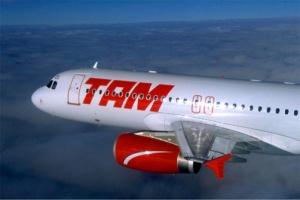Landmark reforms set to boost Brazilian aviation

Brazil is paving the way to open its aviation industry up to foreign ownership, in a move aimed at attracting much-needed infrastructure improvements in the build-up to the 2014 World Cup and the 2016 Olympics.
The legislation is expected to be the Brazil’s first big reform under new president, Dilma Rousseff. Politicians are likely vote in late May to amend a ruling to allow overseas investors to own up to a 49 per cent stake in domestic carriers, up from 20 per cent.
In an interview with the Financial Times, Carlos Eduardo Cadoca, a member of Brazil’s Tourism and Sport Commission said the rules will also have to go through the senate but are expected to come into force as early as June.
Brazil has previously been reluctant to open up its airspace to foreigners, but investment is desperately needed to match the economic growth.
Domestic demand for air travel in Brazil rose 23.5 per cent last year, putting immense pressure on the country’s airlines and airports. The need for reform has been underlined by Brazil’s preparations to host the forthcoming mega sporting events.
ADVERTISEMENT
The new rules are expected to help boost investment in Gol and Tam, the country’s two largest carriers, however the main beneficiaries are expected to be the smaller airlines.
“The market is dominated by two companies so by opening up the sector, and allowing greater foreign participation, we can help those other smaller airlines,” Mr Cadoca told the FT. “This will be good for the consumer, but also good for the country.”
Tam has aggressively moved to consolidate its position over recent months, buying into smaller competitors and hatching partnerships with other airlines. The company is also waiting for regulatory approval for a merger with Chile’s flagship carrier Lan, announced last August.
However, the new legislation was unlikely to solve the wider challenge of lack of airport infrastructure investment. Queues at international airports such as São Paulo and Rio de Janeiro.

